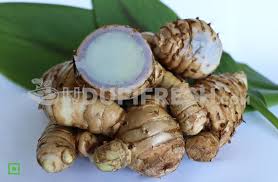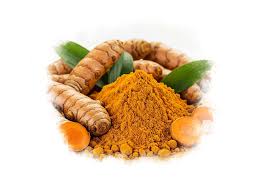Healthy vision is an essential part of overall well-being, and Ayurveda offers time-honored remedies to protect and improve eye health. At Dirghaanshi, we explore how Ayurvedic herbs can support healthy vision and prevent common eye problems like strain, dryness, and inflammation. Discover the natural, holistic solutions Ayurveda offers to maintain eye health and enhance vision naturally.
In today’s world, where we spend countless hours staring at screens, eye health has become a growing concern. Ayurveda, with its deep understanding of the mind-body connection, offers valuable insight into maintaining and improving eye health. By using natural herbs, specific diets, and lifestyle practices, Ayurveda works to address common vision problems like eye strain, dryness, redness, and blurred vision. Let’s explore some of the most beneficial Ayurvedic herbs for healthy vision:
Triphala: One of the most powerful herbal formulations in Ayurveda, Triphala is a blend of three fruits—Amalaki (Indian gooseberry), Bibhitaki, and Haritaki. It is known for its detoxifying properties and ability to enhance eye health. Triphala is rich in vitamin C, which helps protect the eyes from oxidative damage and supports the regeneration of tissues, including those in the eyes. Triphala also improves circulation to the eyes, reducing strain and fatigue.
Amalaki (Indian Gooseberry): A key ingredient in Triphala, Amalaki is a rich source of antioxidants, particularly vitamin C. This herb helps protect the eyes from environmental stressors and harmful free radicals that can cause cataracts and age-related macular degeneration (AMD). It also aids in improving night vision and overall eye strength.
Saffron: Known for its vibrant color and medicinal properties, Saffron is an excellent herb for eye health. Studies suggest that saffron can help improve vision by enhancing the function of the retina and increasing blood flow to the eyes. It is often used in Ayurvedic treatments for conditions like retinitis and age-related macular degeneration (AMD). Saffron is also effective in reducing inflammation and preventing eye infections.
Bilberry: Bilberry is well-known for its positive effects on eye health. It contains anthocyanins, antioxidants that help strengthen blood vessels in the eyes and improve vision, particularly in low light conditions. Bilberry has also been traditionally used to treat cataracts, macular degeneration, and diabetic retinopathy.
Ginseng: Ginseng is known for its adaptogenic properties, helping the body cope with stress. In terms of eye health, Ginseng improves circulation, enhances nutrient delivery to the eyes, and reduces the risk of eye fatigue. It is commonly used in Ayurvedic treatments to relieve symptoms of dry eyes, eye strain, and other vision-related issues.
Turmeric: Turmeric, with its active compound Curcumin, is a powerful anti-inflammatory herb that supports eye health by reducing inflammation in the eye tissues. It helps protect against cataracts, glaucoma, and other eye conditions. Turmeric’s antioxidant properties also fight oxidative stress, which can damage eye cells and lead to age-related vision decline.
Gotu Kola: This herb is considered a tonic for the mind and body, with particular benefits for eye health. Gotu Kola improves circulation to the eyes and is said to strengthen the tissues of the eye, enhancing focus and reducing symptoms of eye strain. It is also used to treat eye fatigue and improve vision in low-light conditions.
Shatavari: Known for its rejuvenating qualities, Shatavari is an herb that helps nourish and revitalize the body, including the eyes. It supports vision by reducing eye dryness, redness, and irritation. Shatavari is also beneficial for improving eye health in people who suffer from long-term exposure to digital screens or environmental factors.
Rose Water: While not an herb in the traditional sense, Rose Water is frequently used in Ayurvedic remedies for eye care. It has soothing and cooling properties that relieve irritation and inflammation, reduce redness, and moisturize the eyes. Rose water is often used as an eye wash to refresh tired and strained eyes.
Fennel Seeds: Fennel seeds are another natural remedy used in Ayurveda for maintaining eye health. They are believed to reduce eye inflammation, enhance visual acuity, and protect the eyes from the harmful effects of environmental toxins. Fennel can be consumed in tea or applied in an herbal eye wash to soothe and rejuvenate the eyes.
Tips for Maintaining Eye Health through Ayurveda:
- Diet: A balanced diet rich in fruits, vegetables, and nuts is essential for healthy vision. Incorporate antioxidant-rich foods like carrots, leafy greens, and berries into your meals to support eye health.
- Hydration: Drinking plenty of water helps keep the eyes hydrated and reduces the risk of dryness and irritation.
- Eye Exercises: Regular eye exercises, such as blinking exercises or palming, can help reduce eye strain and improve focus.
- Rest: Adequate sleep and reducing screen time can prevent digital eye strain and protect eye health.
- Herbal Supplements: In addition to using the herbs mentioned above, consider Ayurvedic herbal supplements specifically designed to support eye health, like Triphala or Amalaki tablets.
By incorporating Ayurvedic herbs and practices into your daily routine, you can naturally enhance your vision and protect your eyes from common ailments. Ayurveda’s holistic approach not only targets eye health but also supports overall wellness, ensuring that you maintain good vision well into old age.













